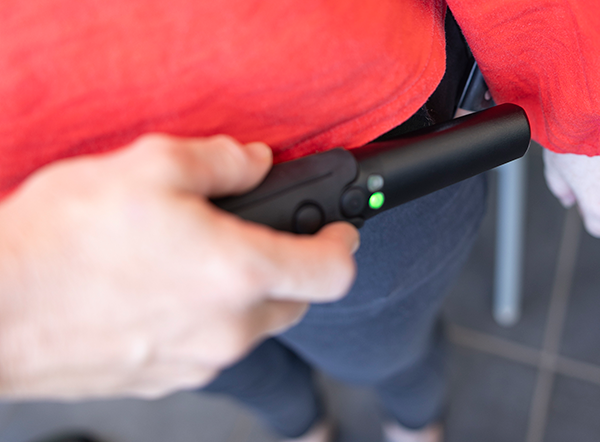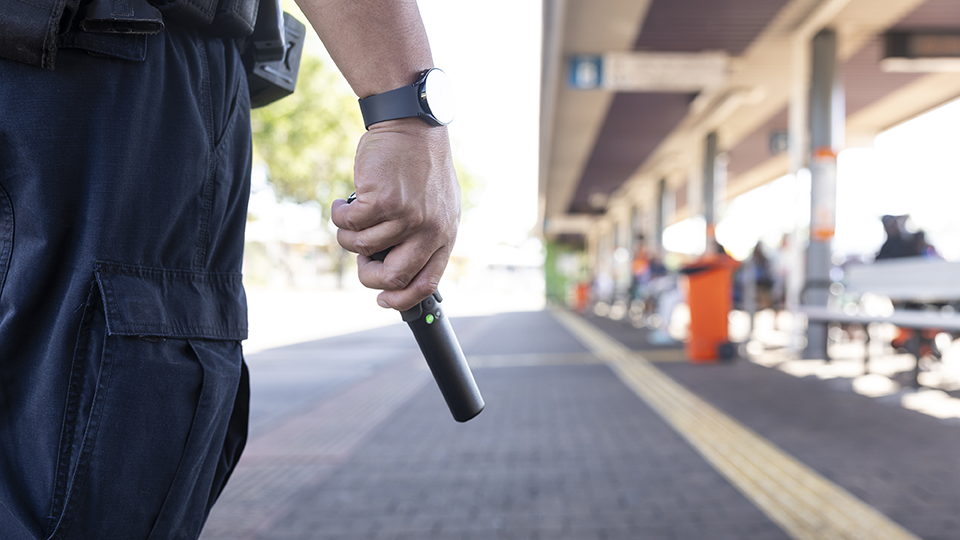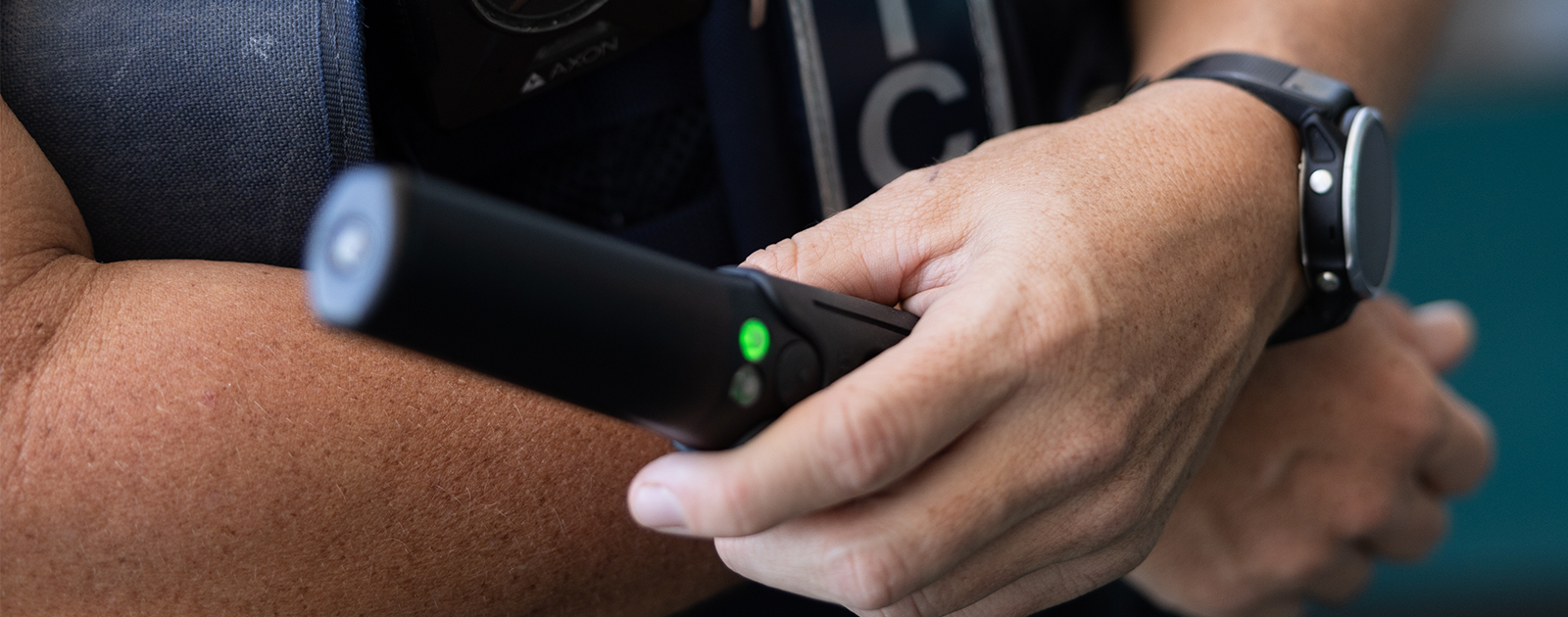Choose life. Not a knife.
As part of the NT Government’s Knife Crime Reduction Strategy 2023, new laws now provide NT Police with "stop and scan powers" to detect and remove knives and other weapons by using metal detecting handheld scanners (wands) in high-risk areas.
These devices are being used to make public places safer for everyone.
Here is what you need to know.
What is police stop and scan?
In high-risk areas and on public transport and in places where police think a crime may have happened, police can stop and scan people.
Police use hand-held scanners known as wands that can find metal objects to do this.
When do they use this power?
Some police officers can give permission to use these powers in places where there is a higher risk, like public transport areas or places where police think a weapon-related crime might happen in the next 12 hours.
These powers can only be used with a special permission called an 'authority', and it only lasts for 12 hours.
To give this permission, certain conditions have to be met. These conditions include recent weapon-related crimes in public places, thinking about how the scanners will help stop crime from happening, and considering how stop and scans might affect people who are not doing anything wrong in that area. Police also consider what happened when hand-held scanners (wands) have been used in the area before.
What can I expect when I'm scanned?
If you are in a high-risk area or on public transport or in a place where police think a crime may have happened, a police officer might ask you to stand still for a scan.
The police officer will wave the handheld scanner (wand) all over your body, over your clothes and shoes.
The scanner is safe and doesn't go under your clothes or inside your body. It simply checks if you are carrying anything made of metal.

What if I don't let the police scan me?
If you are asked by police to have a scan and you say 'No', you might be breaking the law.
What happens if metal is found?
If the handheld scanner (wand) finds metal on you, the police can ask you to show them what you are carrying. Police might need to scan you again to make sure there are not any more metal objects to be found.
If you do not do what the police ask you to do without a good reason, you could get a fine of $352, or police might search you. If police find a weapon during the search, you may have it taken away, receive a fine or face arrest and a prison sentence.
What if I have a pocket knife?
Not everyone who has a knife in public is doing something illegal, especially people who don't have a place to live and use knives for cooking and other safe reasons.
When the police find someone with a knife, they will talk to the person and think about what is going on.
Police will make a decision based on the reason the person is carrying a knife and the law.
The law says you cannot carry a weapon in public unless you have a good reason, and you must carry it safely and for a legal purpose.

But I'm a law-abiding citizen!
This law does affect everyone, even people following the law. But it is like when the police do random breath tests (RBTs) to make sure people don't drink and drive. The goal is to make the community safer.
Anyone in a high-risk area might be asked to stop and be scanned by police.
The scanning should be done in a way that is not too upsetting, and if possible, by a person of the same sex.
High-risk areas
High-risk areas are places where there is a concern about weapons being used and crimes related to alcohol.
These places are chosen because of things that happened there before.
Where are the high-risk areas?
There are 16 high-risk areas across the Territory:
- Karama precinct
- Parap precinct
- Fannie Bay precinct
- Bundilla Beach precinct
- Leanyer precinct
- Stuart Park precinct
- Marrara precinct
- Malak precinct
- Nightlciff precinct
- Nightcliff Foreshore precinct
- Darwin CBD
- Casuarina CBD
- Palmerston CBD
- Katherine CBD
- Alice Springs CBD
- Tennant Creek CBD.
The Northern Territory Police Force regularly conduct wanding operations to enhance community safety in public places in cooperation with Transit Officers.
Members from the Territory Safety Division and Social Order are proactively using hand-held scanners to detect and seize prohibited weapons.
Changes to the legislation have given police more streamlined authorisation to conduct lawful wanding operations, allowing our members to wand members of the public in most public places, not just designated high risk areas. This includes bus interchanges and even schools with the permission of the Principal.
Wanding operations will continue in the foreseeable future with a focus on enhancing community safety.
More information
The Police Legislation Further Amendment Bill 2023 introduced changes to enhance public safety and deter weapon-related offences.
For more information visit pfes.nt.gov.au/wanding
